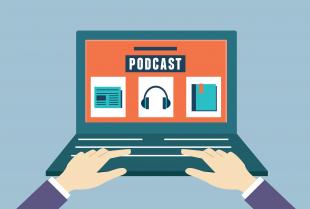This week, we’re continuing our series of posts featuring leadership training and expertise from Frank Lee. We already featured Frank’s training on the Three Fundamental Stages of Leadership, but this week we’ll discuss the difference between leadership and management. ... [more]
Chances are, if you’re a professional in today’s social media-driven world, you have a LinkedIn profile. According to LinkedIn, their professional social network now includes 380,000,000 registered users--and it’s growing. With 118 million users in the U.S. and 39 million students and recent college graduates joining the site, it’s worth pausing to consider a simple change that can make you stand out in the crowded world of LinkedIn: writing a stand-out summary. ... [more]
Imagine this: you’re a Human Resources Manager for a small company and you’re tasked with providing required sexual harassment training for 85 employees. You hear about a company creating game-based, virtual simulation courses in lieu of traditional in-person training. What do you do? A) Stick with the old training and hope your employees absorb and retain the information or B) Try out the new virtual simulation training course and see if your employees learn better through participation in a world of virtual choices and consequences. ... [more]
In the digital era, more and more employers are performing thorough background checks on prospective employees, and are using online sites such as LinkedIn to discover everything they can about a certain individuals career, educational, and professional history. Even outside of a background check, LinkedIn is akin to an unofficial resumé, and is checked by anyone interested in hiring. So how do you make your LinkedIn into something unique, special, thorough, and ultimately representative of who you are as a person and as an employee? ... [more]
Frank Lee shares some of his thoughts on leadership and management training. ... [more]
What does critical thinking mean to you? If you think back to your undergraduate philosophy or humanities course, perhaps you recall being encouraged to apply critical thinking to interrogating texts and ideas with open-mindedness, logic, and reason. Though the term can encompass a multitude of definitions, practicing critical thinking involves observation, interpretation, analysis, and inference. But critical thinking doesn’t just happen in the classroom. Have you ever considered how your critical thinking skills can serve you in the workplace? Or, how you can train your employees in critical thinking and problem solving? ... [more]
Have you ever had any of these self-negating thoughts? More than likely, at one point or another in your life, you’ve experienced what psychologists label “imposter syndrome.” Put simply, imposter syndrome is the tendency to discount your own successes and doubt your abilities. The term first appeared in the early 1970s, when two researchers, Pauline Rose Clance and Suzanne Imes studied a group of successful women and began to notice a trend among their subjects. Clance and Imes discovered that many of the women they studied were plagued by what they labeled the imposter phenomenon, or the persistent belief that “they are really not bright and have fooled anyone who thinks otherwise.” Ironically, imposter syndrome often plagues high-achieving, successful individuals who are the only ones who see themselves as imposters or frauds. High-profile professionals and celebrities like Kate Winslet and Sheryl Sandberg admit to struggling with imposter sydrome, while research has shown it especially affects women and minorities more frequently than men. ... [more]
How do you define company culture? Every company, no matter its size, number of employees, industry, or location, has a culture. As William Craig explains in an article for the Forbes blog, company culture isn’t something employees bring with them. Rather, it’s “something that is pre-existing in your company’s genetic code.” Yet, even with Craig’s description, company culture can be hard to grasp. ... [more]
The days of families huddling around radios to listen to their favorite nightly programs may be long gone, but the market for engaging audio programs hasn’t entirely diminished. In place of old-fashioned radio sets are headphones, smartphones, and apps that allow users to plug in and listen to thousands of audio programs covering a range of topics. ... [more]
I graduated from a small liberal arts college in 2015. During the four years I was in college, I didn’t take any online courses and still purchased most of my textbooks in paper form. I took courses from as many professors who utilized Moodle (an open source LMS) as I did from professors who did not allow e-readers or laptops in class. As I see online education and distance learning grow in popularity, I have to wonder, did I attend college in a digital dark age? Or are we poised on the brink of a technology-driven overhaul in higher education? ... [more]









